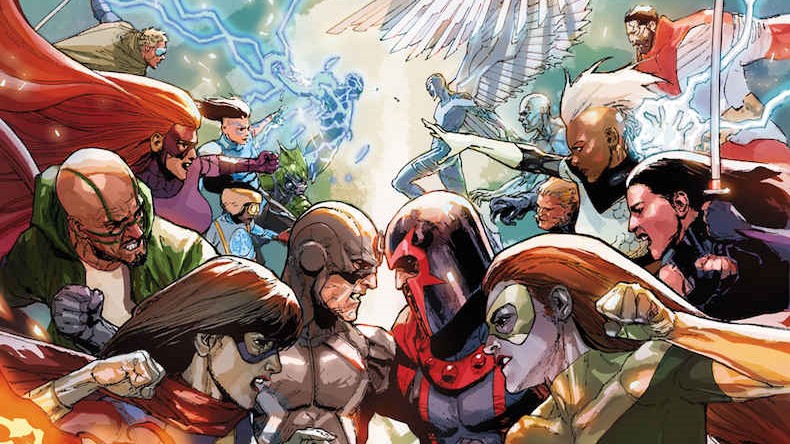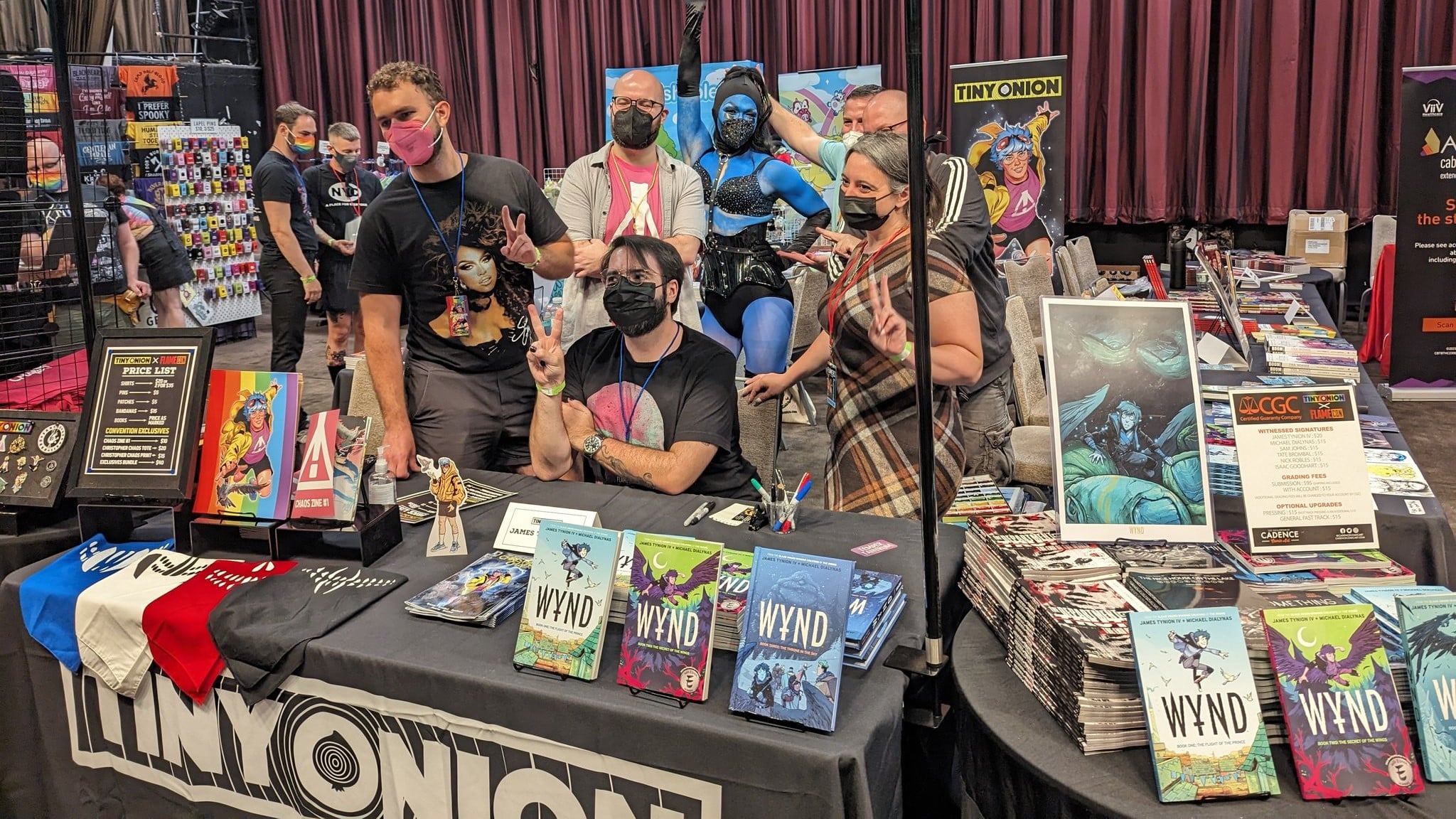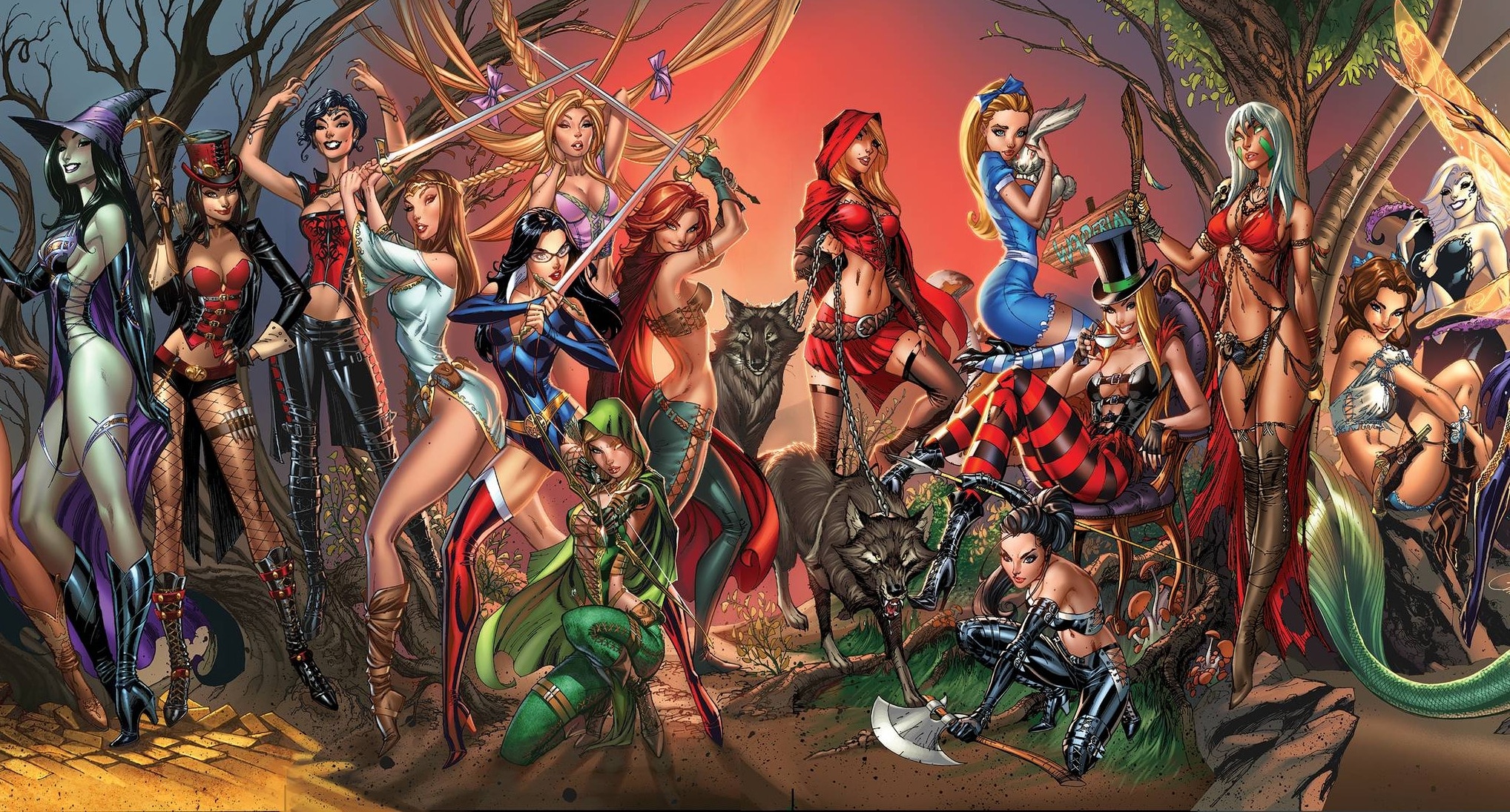When you walk up to Charles Soule’s table in artists alley of C2E2 and ask for an interview, he leans over to his assistant. All preliminary questions in this interaction are dealt with through the assistant. It’s a thing he and Rob Leifeld do, but to be fair to Charles, it seems like he’s tired on a Friday afternoon and doing a bit. He’s giggling and overacting as he is presenting himself as a big shot. But there is one question his assistant asks that feels like a real question, one that weeds out if the interview will be worth Soule’s time, and one that anyone who has been online in the last five years will immediately understand.
Charles Soule’s assistant asks if I have strong opinions on the Star Wars sequel trilogy.
There’s an energy around fandoms of all sides these days. It would be disingenuous to say that reactions to things around “geek culture” haven’t mirrored the divisiveness in the political landscape or that all creators haven’t experienced it. Before talking to us, there’s a desire to know if I have an agenda. For his part, Soule was thrown into the deep end from the start of his career, so his reluctance to engage is understandable.
Soule told me “I’ve always been a novelist, just not a successful one.” A failed attempt at selling a book in the 00s led Soule to pivot his focus to comics. After taking over for Scott Snyder on Swamp Thing, Soule became a known commodity in the wider comics world with credits at both Marvel and DC, including a highly acclaimed run on She-Hulk. Marvel specifically tapped him for some very high profile projects in 2014, including the launch of their Inhumans line.
At the time Marvel Studios was getting ramped up for an Inhumans movie, then planned for 2018 between the films Avengers: Infinity War Part I & II. The launch was set up in the summer event Infinity but creative differences led to a shift in the story and team, bringing Soule deep into a world unlike any he had seen in comics. “This was going to be a multiyear publishing project, a lot of the companies resources were going to the Inhumans in general.” Soule stated. “I didn’t know what I was getting into at the time.”
At the time there was a lot of discussion and theorizing about Marvel’s focus on the Inhumans at the alleged expense of the beloved X-Men franchise. Per Soule “The complexities of writing something that big, with that much corporate oomph behind it, didn’t really become clear until after the first year of writing it. That’s when it was out in the world and living as part of the ecosystem of Marvel comics and the ecosystem of fan response.” Looking back he’s proud of his work on the franchise, describing the 55 issues between ongoings, minis and events as an awesome interconnected novel, but as he was writing it, the experience was “very intense”.
I ask him, with a smirk, why he hates the X-Men so much, citing his role in killing Wolverine and Cyclops, the two most popular members of the franchise. It’s asked in jest but it’s noticeable that he cringes at the question, his assistant paying lip service to an apology for not screening me better for any hidden agendas. It’s becoming apparent that between his time in comics and with Star Wars, Soule’s tolerance for fanboy ranting about creative choices is, understandably, at an all time low.
I laugh it off and rephrase my question. I wanted to dig into Soule’s mindset, writing stories like Death Of X and Inhumans Vs X-Men where he knew the reaction from readers would be strong. How does a creator approach a story knowing there will be backlash, earned or unearned? He tells me, “I learned relatively early-ish to just not worry about it”. Soule describes a constant conversation between readers and creators, a conversation he loves, adding “for my own sanity to let my end of the conversation just be the story.” Soule maintains that as long as he told a story he was proud to put his name on, his job is over on the last page. The rest? He just wants to filter out and move on with living his dream.
Since making that mark on comics, Soule has directed his focus towards novels. His 2021 book Star Wars: The High Republic: Light of the Jedi was the New York Times best seller in hardcover fiction for four weeks. He’s taking steps to ensure whatever conversation or controversy surrounds the franchises he works on it stays far from his table.
Zachary Jenkins co-hosts the podcast Battle of the Atom and is the former editor-in-chief of ComicsXF. Shocking everyone, he has a full and vibrant life outside all this.






